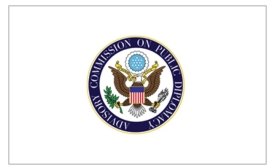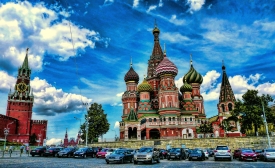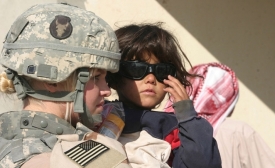public diplomacy

November 23, 2015

November 18, 2015
Olga Kamenchuk discussed Russian Public Diplomacy post-Cold War.
November 17, 2015
PBS News Hour explores how the U.S. Ambassador to Denmark is using new media platforms, including social media and his own reality TV show, to connect with Danish citizens.

November 11, 2015
On October 14, CPD held a PD summit at USIP in DC.

November 11, 2015
On the U.S. Military's public diplomacy activities.
November 3, 2015
A look at the power of education diplomacy to make a significant difference to local communities and individuals around the world.







